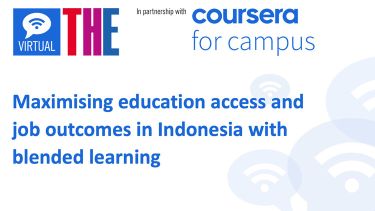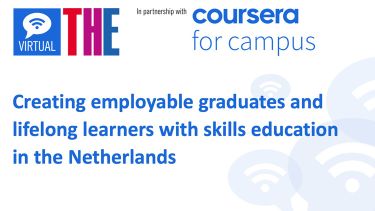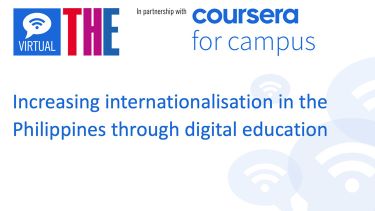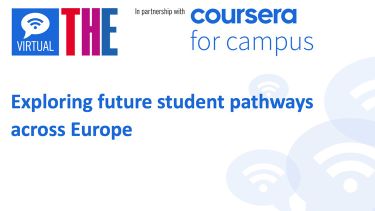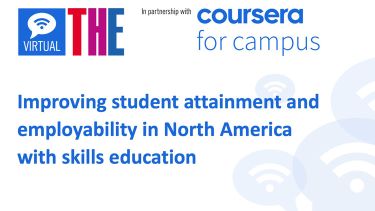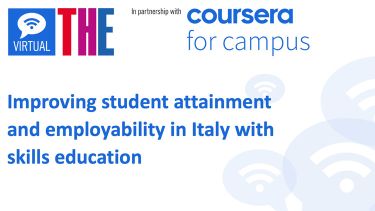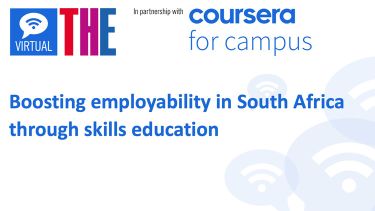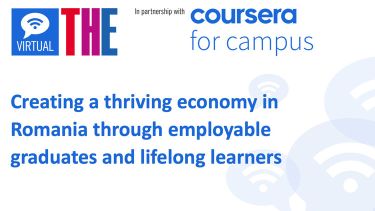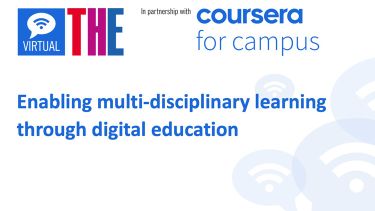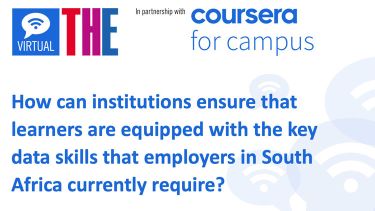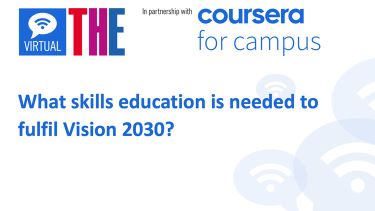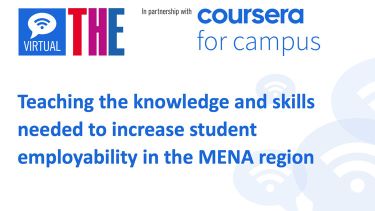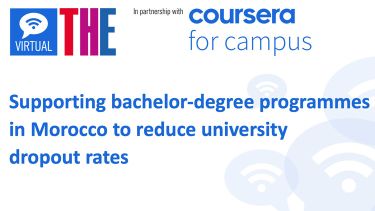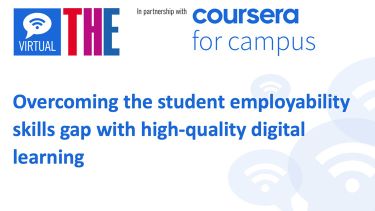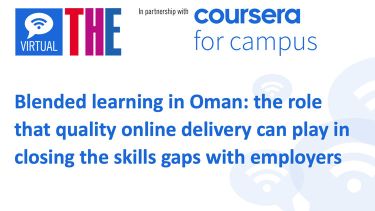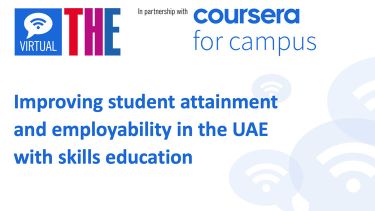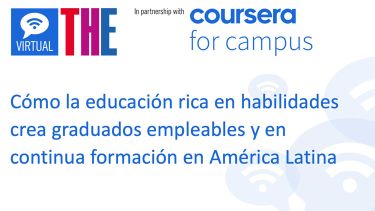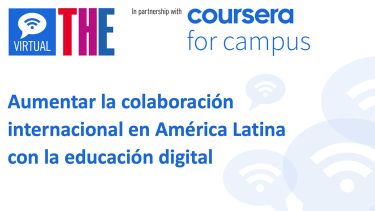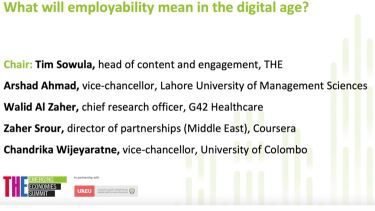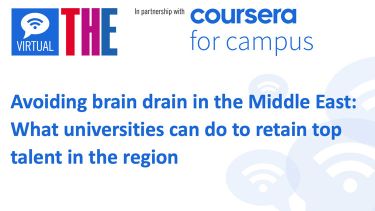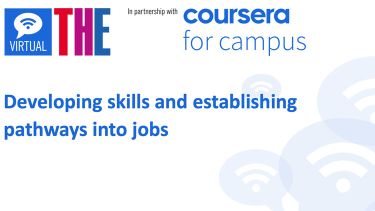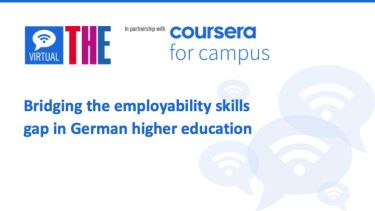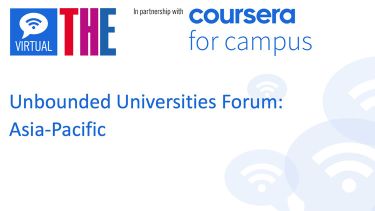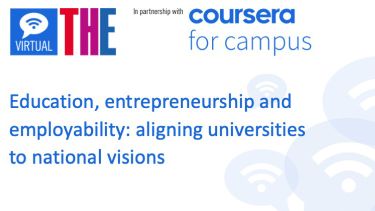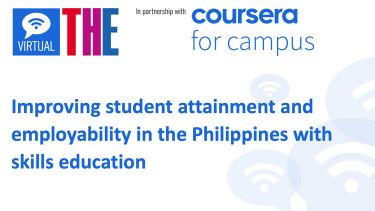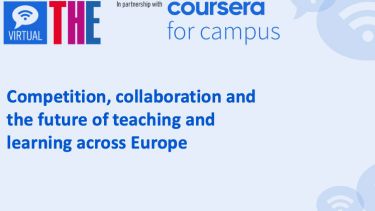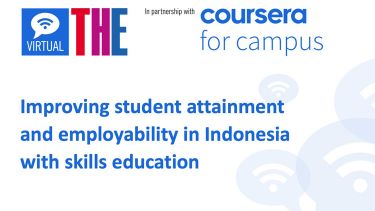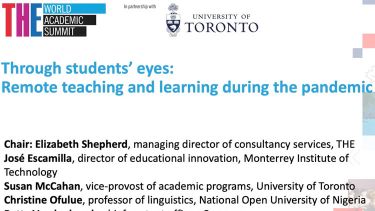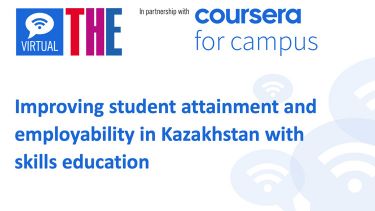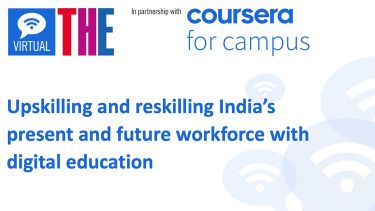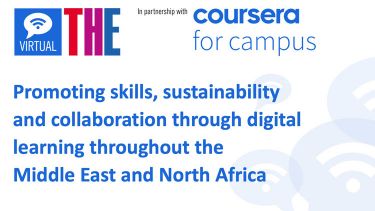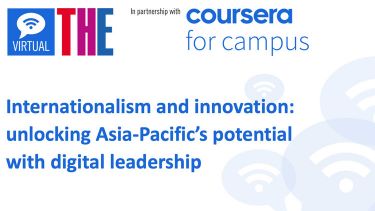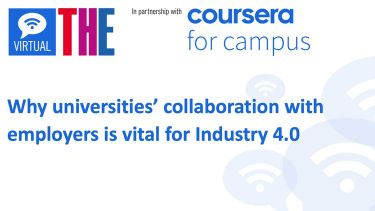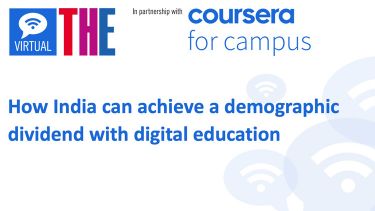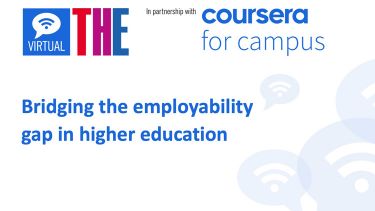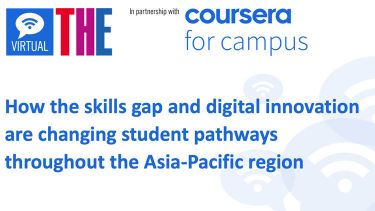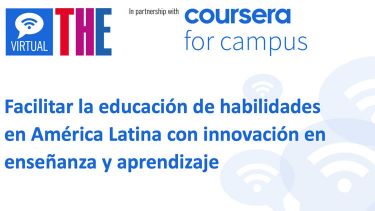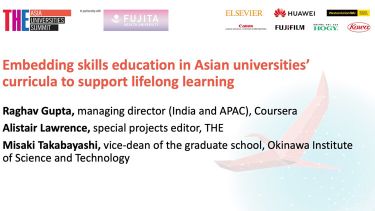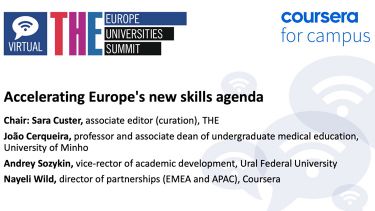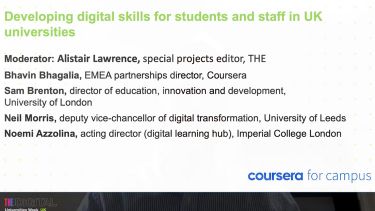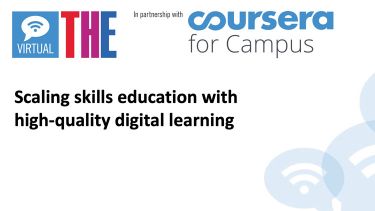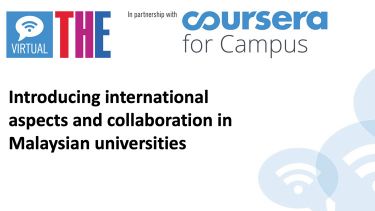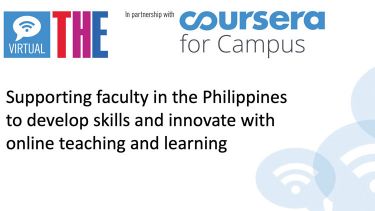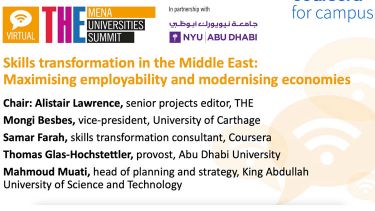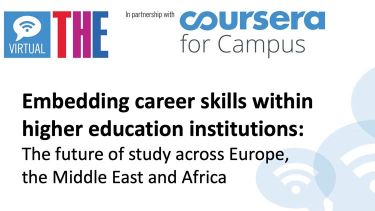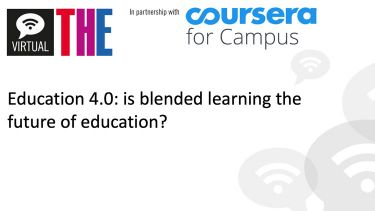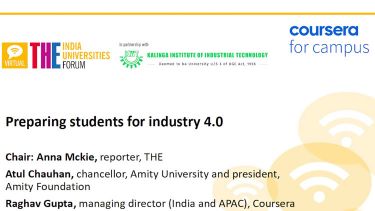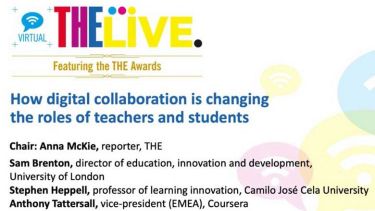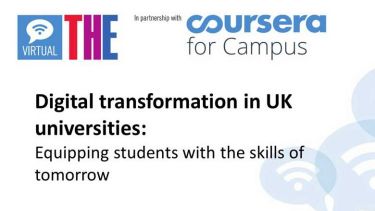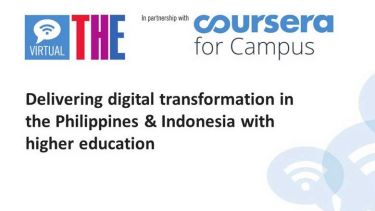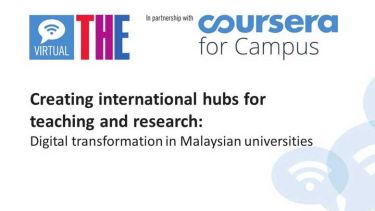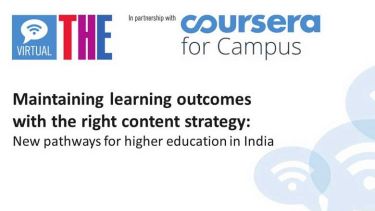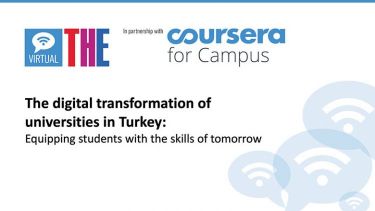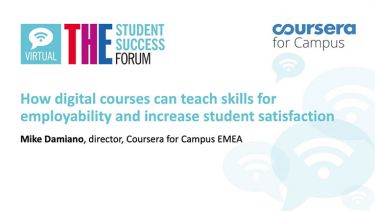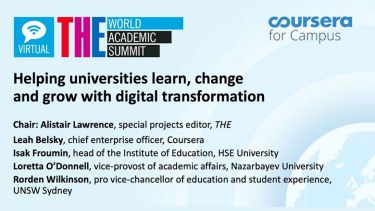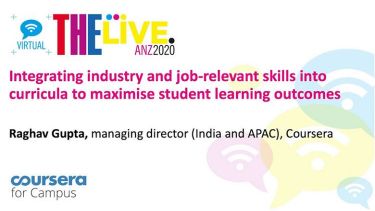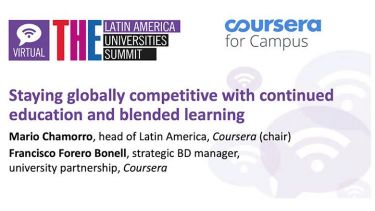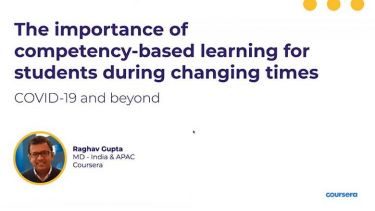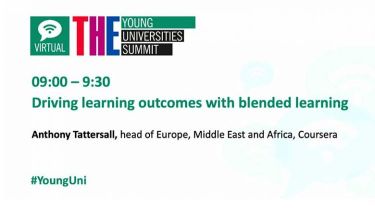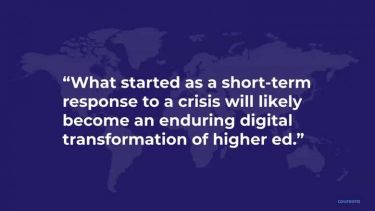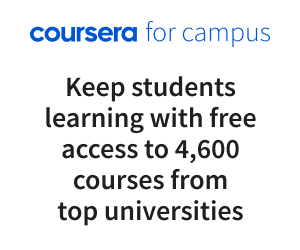Higher education institutions must adapt to the changing landscape of education and the workplace to equip students with the skills necessary for the future
Webinar held in September 2021.
Digital transformation, in combination with the disruption caused by the Covid-19 pandemic, has reshaped the workplace. Higher education institutions must respond to the changing demands of employers to equip students with the skills they need and that provide new career pathways.
At a Times Higher Education webinar, hosted in partnership with Coursera for Campus, leading voices from academia and industry came together to discuss the role of universities in preparing students for the rapidly transforming workplace.
Anne Boddington, professor emeritus at Kingston University, opened the discussion by suggesting that traditional ways of thinking about employability and skills training must be questioned. “At the moment, we are looking at graduate jobs in quite a narrow way. Probably in 10 years, we will share cognitive skills with AI and machines,” she said. Looking forward, Boddington said, we need to think about what future skills might look like and how we will differentiate ourselves from increasingly sophisticated technologies.
“The jobs that will be in demand for the future look very different from the jobs the universities teach students at the moment,” said Dike Onianwa, director of partnerships for the DACH region at Coursera. Universities have begun to realise that a successful strategy is not always about “doing different things, but about doing things differently”, he said. Today’s higher education institutions need to be more comfortable with adapting quickly if they are to provide students with new pathways into the workplace, he added.
Eleanor Shaw, associate principal of education and entrepreneurship at the University of Strathclyde, suggested that part of the solution lay in teaching students entrepreneurial thinking. “What we don’t give young people enough is the opportunity to fail and to learn from failure. An entrepreneurial mindset gives people the confidence to use failure as the opportunity to learn,” Shaw said.
Some forward-thinking universities have identified the benefits of equipping students with a “transdisciplinary set of skills”, said Samar Farah, skills transformation consultant at Coursera. Employers are demanding a more diverse set of skills – beyond simply a student’s field of study – which is reflected in the growing number of young online learners taking skills training into their own hands. “Universities should start to think about providing students with these personalised learning pathways to better prepare them for the future,” Farah said.
The panel agreed that the disruption of recent years has forced universities to think more carefully about the teaching they offer. “In the past two years, we started to re-engage with how we help people to learn. In the future, I want us to think about how we can harness technology to provide the best learning experience,” Shaw concluded.
Watch the webinar on demand above or on the THE Connect YouTube channel.
Find out more about Coursera for Campus.





